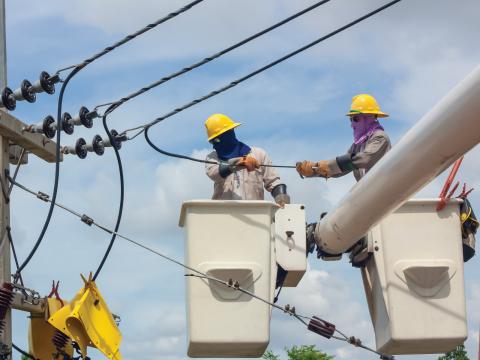Transactive Energy Research Highlights

PNNL explores the performance, impact, and potential benefits of transactive energy in a number of different ways:
- We use large-scale simulations (most recently under the DSO+T study) to demonstrate the feasibility and system benefits of transactive energy when deployed at scale.
- Research is underway to determine the key metrics and resulting value of transactive energy on grid resiliency.
- PNNL works with research and industry partners to explore the role blockchain technologies can play in supporting transactive energy implementations.
- And PNNL is proving out the maturity of transactive energy coordination solutions through field demonstrations in residential and commercial buildings.